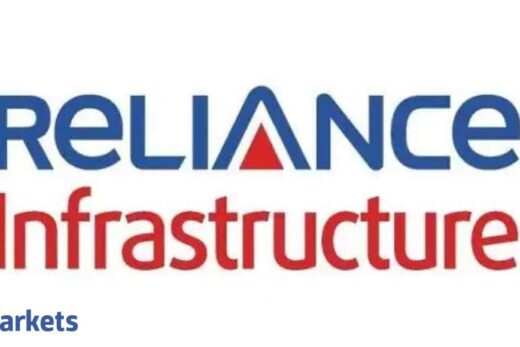Are we heading into a scenario where we will suddenly see a big hit three-four months down the line or do you expect the recovery to be delayed but still slow and steady and gradually inching back?
The Q4 numbers of FY21 have been good and they have been better than expected as well. The economic recovery was strong and we had come back almost to pre-Covid levels. However, then came the second wave and obviously things are not looking that great for the next two- to three months given the lockdowns and given the fact that this wave has had an impact even in tier II and tier III cities.
Frankly one hopes that things will taper down over the next 2-3 months. Also with the vaccination drive improving by May end, we should see things opening up maybe by June 15 onwards. It is going to be more of a delayed economic recovery than deterioration in the economic recovery. Maybe Q1 numbers will be lower than what we would have expected before being hit by the second wave, but if by Q2, Q3 onwards things move back to momentum, then Q1 numbers can be recouped to some extent. Also, this time we have not seen the economy going into complete lockdown. We still have an economy which would be running at 40-50-60% depending on the sectors. So we feel it is more of a delayed economic recovery than deterioration.
Has demand been hit in certain pockets like retail, discretionary? By retail, I mean groceries as well and large chains, multi-format stores. How do you see them being impacted?
Most of the domestic-led companies are going to get impacted. But if things open up by June-July, then things could be in a much better position given the vaccination drive also helps us open up the economy in a much better manner like in the US or the UK. In the US, they are talking about not wearing masks in certain places. If one goes by those examples, we should not be feeling very negative.
We could have avoided the second Covid wave. A faster vaccination drive could have help us deal with the second wave in a much better manner. But having said that, I think we are just in a delayed recovery process. In another two or three months, things should be much better for India.
The difference between the first wave and the second wave is commodity and the price inflation and underlying commodity prices. While that has made some of the corporate balance sheets look good, it may not be a factor going forward. How do you see this factor playing out?
Commodities are on a tear — be it hard commodity or a soft commodity. You can call it because of the revival in demand from a lower base in the developed world now as they are opening up. Also, a lot of money is sloshing around in the world which is finding its way into different asset classes and also in some commodities. There is a supply demand mismatch due to ongoing geopolitical tensions.
“Playing only Covid related stories is short term-ish in nature and can backfire if the second wave goes off within the next two months.”
It is a combination of everything which has led to the massive rise in the commodity prices which will in a way impact inflation at some point of time and that is a risk for the world as well as for India. It’s better if it subsides over a period of time. If the rise in inflation is not out of proportion, then some inflation is always good because it is easy for companies to pass on the prices and pricing power comes into the play which is in a way good for equity markets.
But if inflation goes out of proportion, then obviously we will be looking at serious challenges.
Last year, IT stocks on an average were up more than 80-90%. Is there some juice left in some of the largecap IT stocks?
IT companies are in a good shape in terms of demand and many of the projects which would have come two, three years down the line, are coming to them now and hence the order book has swelled significantly. That explains the optimism over these technology stocks that if they continue to deliver double digit growth rate with decent cash flow generation, there is room for making returns.
Obviously, once the economy opens up nicely and the Covid crisis goes away, the shift will happen from technology to more domestic driven economies across the world and be it financials or be it retail or be it some autos or something else. To that extent, the money will rotate from this sector to the domestic sectors but otherwise on a standalone basis, is there room to grow? The answer is yes. Is there room to make returns? The answer is yes.
What is your view as to some of the prominent names within the pharma space that would give you comfort for a long term?
We should not be just looking at Covid as an opportunity for pharma sales or profitability because that can be short term-ish in nature. The more long-term proportion should be in terms of what kind of therapeutic segment the specific companies are going into and obviously there is again a good room to grow for them over the next two to three years. Many of the companies are coming out of the problem of USFDA issues which had cropped up and had led to problems in their facilities. If they are sorted out and if they are get back their old mojo of let us say 15% kind of growth rate with Covid as a trigger for more product innovations, it is a good story to play. But only playing Covid related stories is short term-ish in nature and can backfire if the second wave goes off within the next two months.
What about the massive opportunity within the broader markets? What is your advice to investors?
The economy is coming out of a lower base and this is seen across the world and. Even in India, growth rates and volume pickups are tending to be higher across the sectors. For India specifically, if one is looking at 6-6.5% real GDP growth rate for two-three years on an average, clearly the growth momentum would always be higher in the midcap and the small cap side compared to the largecaps. However, large companies are also becoming more and more efficient with the use of technology and so you cannot completely ignore them because profit pools are getting narrower and narrower, being restricted to a few companies which are able to innovate and are able to demonstrate the efficiency game with a strong balance sheet.
Our approach is to always keep that risk of slowdown or disruption in mind. With that view, a multi-cap strategy is the best way to play around where the largecaps will continue to give compounding returns as they improve their market share while the medium and the small companies, if they have a differentiated product basket, will continue to grow at a higher pace compared to largecaps.
Are there any specific themes in the broader market or are you just seeing them as corresponding plays to the pockets that you have already identified?
With so much volatility around the world and the Covid crisis, this is not the time to ignore any sector. It is better to identify three to four stories in a particular sector and just be with them with a longer term view. Over a period of time, once things settle down, we will get to know which theme would really play out but at this juncture, a lot of sectoral rotations will keep happening depending on the outcome of the Covid crisis and depending on how things improve on the vaccination front, leading to the opening up of economies.
As of now, things are very volatile and one does not know which way the economy will move on a sustainable basis. It is better to remain diversified and keep investing in those stories across the sectors so that you do not miss out on any particular theme which will emerge over a period of time.
Are PSUs a clear avoid or is a case building up there?
Some PSUs are looking good. If they fit the metric of what we really look into our universe in terms of growth, scalability of the business model and in terms of demonstrating sustainable good ROEs and cash flows, then we would definitely like to look into them. However, it is tough to give a broader view on the entire PSU basket because different companies have different growth rates, different ROEs and different cash flows. Stock specific, there could be an opportunity there but not generalising it.



